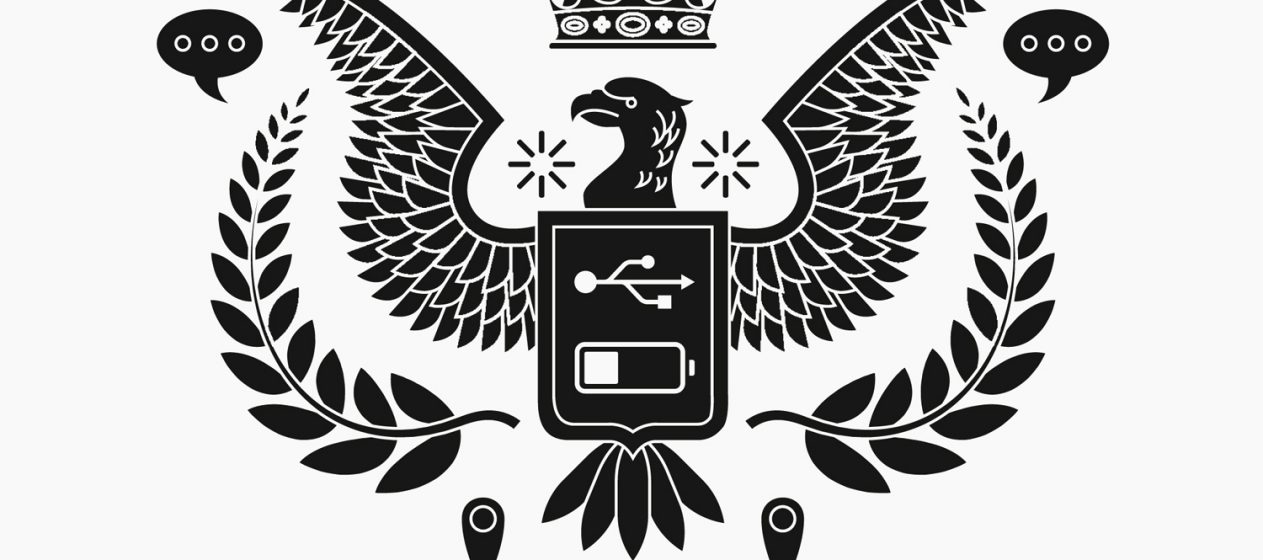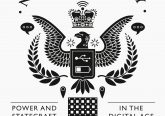Dr Tristen Naylor, Oxford’s Lecturer in Diplomatic Studies, chatted with Tom Fletcher, the former British Ambassador and Downing Street foreign policy advisor, about his new book, Naked Diplomacy.
In this three-part series their discussion explores everything from diplomacy in the digital era to the divide between academics and policy makers — with a nod to the intertextuality of W.H. Auden and Black Sabbath along the way. For Part I, see here, and Part II, see here.
TN: I want to talk about your style of writing and your approach to it. I spend most of my waking hours reading works on diplomacy and I spend much of that time asking myself why I self-inflict such torture because so much of it – too much of it – is either dense, jargon-heavy academic stuff or fluffy, anecdote-heavy autobiographical stuff. You’ve managed to produce something that is at once both well researched and well written. So, first, thanks; second, how’d you do it?
TF: Well, thank you. You know, I look at the charts – almost daily now – and it is true that the stuff on international relations tends to be either people’s anecdotes and memoires or very weighty Kissinger-type tombs- dense, dense books. And the last book written on diplomacy as a sort of practical guide is twenty or thirty years old and recommends stuff like, ‘you shouldn’t give your wife a hobby like tennis’, so there’s a real gap there for this one.
And in terms of making it accessible, we live in the blogging age; that allows you to develop a style that is easier for people to read.
TN: The transcript of this will be hosted on Oxford’s politics department’s blogsite. It’s still relatively rare for academic institutions to have blogs. I think such things are an easy way for the academia to become less closed and for academics’ writing to become less aloof. ‘The Conversation’ is another good example. More of this sort of thing could be only a good thing for bridging the researcher-policy maker divide that we discussed before.
TF: It’s a good thing. Bridging divides is what communication and diplomacy is all about.
TN: And education
TF: Absolutely. And closed systems won’t thrive – and most probably won’t survive – the digital era.
TN: Given that, walk me through your writing process. How do you write for this era?
TF: I wrote mostly to work off a lot of excess adrenaline in Beirut. Once I got started, I found I was more effective at everything else I was doing in my day job. I wrote every day for an hour between six and seven in the morning. It was before I logged onto Twitter, it was before the kids woke up, and it was with a strong black coffee. I would really recommend it as a lifestyle.
I got advice from a very wise, old friend, Patrick Seale, who sadly died last year, on what he called the ‘shoebox theory’ in which you get up each day and just write about whatever happens to interest you that day. Twitter, over the course of the previous day, would often give me inspiration for the next morning. So, if I was thinking about Talleyrand, I’d write about Talleyrand; and if I was thinking about whether Google should be on the Security Council, I’d write a page about that. Patrick’s theory was that if you just write, eventually everything will start falling into categories. You have shoeboxes around the room – or file folders on a computer – for each category and you just shove each day’s writing into its box.
So, for the book, eventually the chapters emerged. I found that a really enjoyable way to write- I was always writing whatever I happened to be curious about.
TN: I like that. You were never banging your head against a wall to get ideas to flow or painfully dragging letters across a page to form words. I usually write in coffee shops and when I look at those writing near me I often see pained faces, tortured by the writing process. Writing is approached as a burden and, admittedly, I’m too often guilty of approaching it as such myself. That said, the ‘publish or perish’ culture makes it difficult to frame it otherwise.
I subscribe to something very much like the ‘shoebox’ strategy, though in lieu of boxes I have stacks of paper inscribed with indecipherable scribbles. Sometimes I pretend that I’m a digital native and use Evernote; but still I much prefer writing by hand.
I also try to have the next day’s topic ready to go. There’s nothing worse than staring at a blank page in the morning and hoping that an idea will somehow suddenly come. It never does.
TF: It’s a very organic process. For much of the time that I was writing I didn’t know that it would emerge as a book in the end. I started out thinking that I’d write a very short handbook on how to do communications in the digital age- something very niche that we might give out within the ministry. And then the blogs started getting some interest. I started to write a lot about Lebanon and realised that I was finding a way to connect with people that I wouldn’t have otherwise. So that inspired me to think more ambitiously about a book.
One critique I’d have of the book is that it’s actually several different books- it’s a bit of a diplomatic handbook, it’s a bit of a diplomatic history, and it’s a bit of ‘what comes next’. There was a moment when the publishers asked me if I could just take a year off and write three separate books.
TN: I actually like that it’s all in the same book. It means that very different audiences can get what they need out of it- be it practitioners looking for advice or outsiders looking for a glimpse at the inner workings of diplomacy.
TF: Well I hope so. I suspect a lot of academics will look at it and think ‘that was a waste of time’ because the depth they’re looking for on a very niche area isn’t there; some practitioners might want more on the practicalities; and the press would love to see more funny stories. But, in the end, I wrote the book that I wanted to write.
TN: You do manage to smuggle anecdotes from your career into the book, though in a very subtle way as brief little vignettes. It’s a delicate way to share the little stories but without it turning the book into a self-interested autobiography. How did you decide to put these little breaks in the writing?
TF: One of my boxes was filled with little anecdotes. At one point in the editing process we felt that including them broke things up too much but then we put them back in. I didn’t want to write a memoire or a book of funny anecdotes so they’re included in the way that they are as a sort of compromise.
TN: I think they’re really useful for giving the reader a bit of a pause, for continually drawing them back in, and for relaying a lot of your points in an approachable, concrete way. It goes a long way to making your argument ‘stick’ which I think is the gold-standard for effective communication.
TF: Well, I hope some of it sticks.
TN: I think it will. On that note, thanks Tom.
TF: Thank you, that was fun!
For Part I, see here, and Part II, see here.
Tom Fletcher CMG (@TFletcher) is the former UK Ambassador to Lebanon and a Visiting Professor at New York University and the Diplomatic Academy. He campaigns for global education, the UK’s creative industries, and the power of social media to create positive change.
Dr Naylor (@TristenNaylor) is Departmental Lecturer in Diplomatic Studies at the Oxford Department of International Development and Deputy Director of the G20 Research Group, London.






